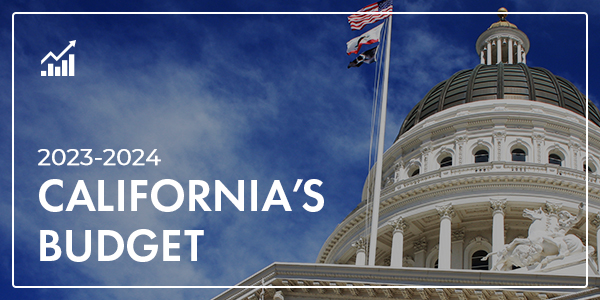Education Budget Sub-Committee Chair Unveils Budget Proposal to Increase Local Control Funding Formula for K-12 Districts
Sacramento, California- Senator Anthony J. Portantino, D–La Cañada Flintridge, Chairman of the Senate Budget Sub-Committee on Education and Senators Ben Allen, D-Santa Monica, Steve Glazer, D—Orinda, Jerry Hill, D—San Mateo, and the Santa Clara Counties introduced a budget proposal to add $1.2 billion dollars to Governor Brown’s Local Control Funding Formula (LCFF). The proposal assumes that the 2018-2019 budget includes the full funding of LCFF plus an addition $1.2 billion. Many school districts have long stressed that the base funding level in LCFF was set too low from the outset. This proposal is an attempt to increase the base level for this fiscal year and will become a permanent part of the funding formula moving forward. Of this amount, $1 billion will increase the base grant and $200 million will increase the base supplemental and concentration grants.
“Since the beginning of LCFF, many districts across California have stressed that the original baseline funding formula was too low and needed to be increased. Many legislators and I have shared this view and I am very proud to be proposing an increased funding plan for all our K-12 districts. This proposal is a fully fundable and a reasonable attempt to accomplish this goal which will make a positive difference for our children. I hope we can do better after the May Revised Budget is released but this concrete proposal that works within the current budget framework,” commented Senator Anthony J. Portantino.
In addition to the increased funding level, the proposal contains accountability requirements as a common-sense companion to the increased funding levels. The LCFF transparency proposal requires school districts to disclose actual expenditure information, both budgeted and expended, supporting services for unduplicated pupils to be included in the LCAP summary. This too, has been a long sought-after goal of parents and good government activists in California as necessary to build confidence in parents and taxpayers for funding public education.
“The Senate proposal says very clearly to our school districts that we hear their budget concerns and support their mission of educating our children with more than just talk. Our proposal takes advantage of our healthy budget year to raise base funding and bring more money to all of our schools. We are also codifying strong accountability measures to give parents and taxpayers confidence that tax dollars will be put to work educating kids,” added Senator Ben Allen, Chair of the Senate’s Committee on Education.
LCFF Budget Proposal provides an additional 2% increase on top of the Governor’s proposed 2.5% cost of living increase (COLA) for a total increase of 4.5%. This proposal builds a higher base grant resulting in more supplemental grant funding in future years. The funding will help with local cost pressures that the LEAs are facing with rising operational cost in areas like retirement, health care, transportation, and special education. The proposal will include $1 billion net funding to the LCFF base. Transparency ensures stakeholders are able to understand how supplemental and concentration funds are being spent for unduplicated pupils. Being that this is the last year of Governor Brown’s term, now is the time to ensure a plan for to build on the LCFF reforms for funding and accountability in future years.
“This sends a message to schools in my district and across the state that legislators have heard their fiscal concerns and are acting responsibly within Prop 98 to increase base funding and help them plan for the future. The increased funding will help districts contend with their present financial challenges and improve outcomes for students," said Senator Jerry Hill.
The LCFF provides discretion for local education agencies known as LEAs, school districts, county offices of education, and charter schools, to spend their state funding. LEAs receive additional grants, for English-learner, low-income, and foster youth students. In exchange for discretion, LEAs must complete a Local Control and Accountability Plans document and must include previous and upcoming year’s goals and actions. Since inception, various educational advocacy groups have expressed concerns that LCAPs do not provide sufficient information regarding how much funding is being spent on services for unduplicated pupils. Since these students generate supplemental grant funding, LEAs should be required to demonstrate their spending.
“I am excited to be supporting this effort to raise the base funding level of the Local Control Funding Formula. Our Districts have long stressed the need to raise the base and I’m very pleased that our current budget situation allows us this opportunity to pursue that goal. All our educational institutions need our focus and need to be prioritized and this is a good step forward in that direction," concluded Senator Glazer.
#####





